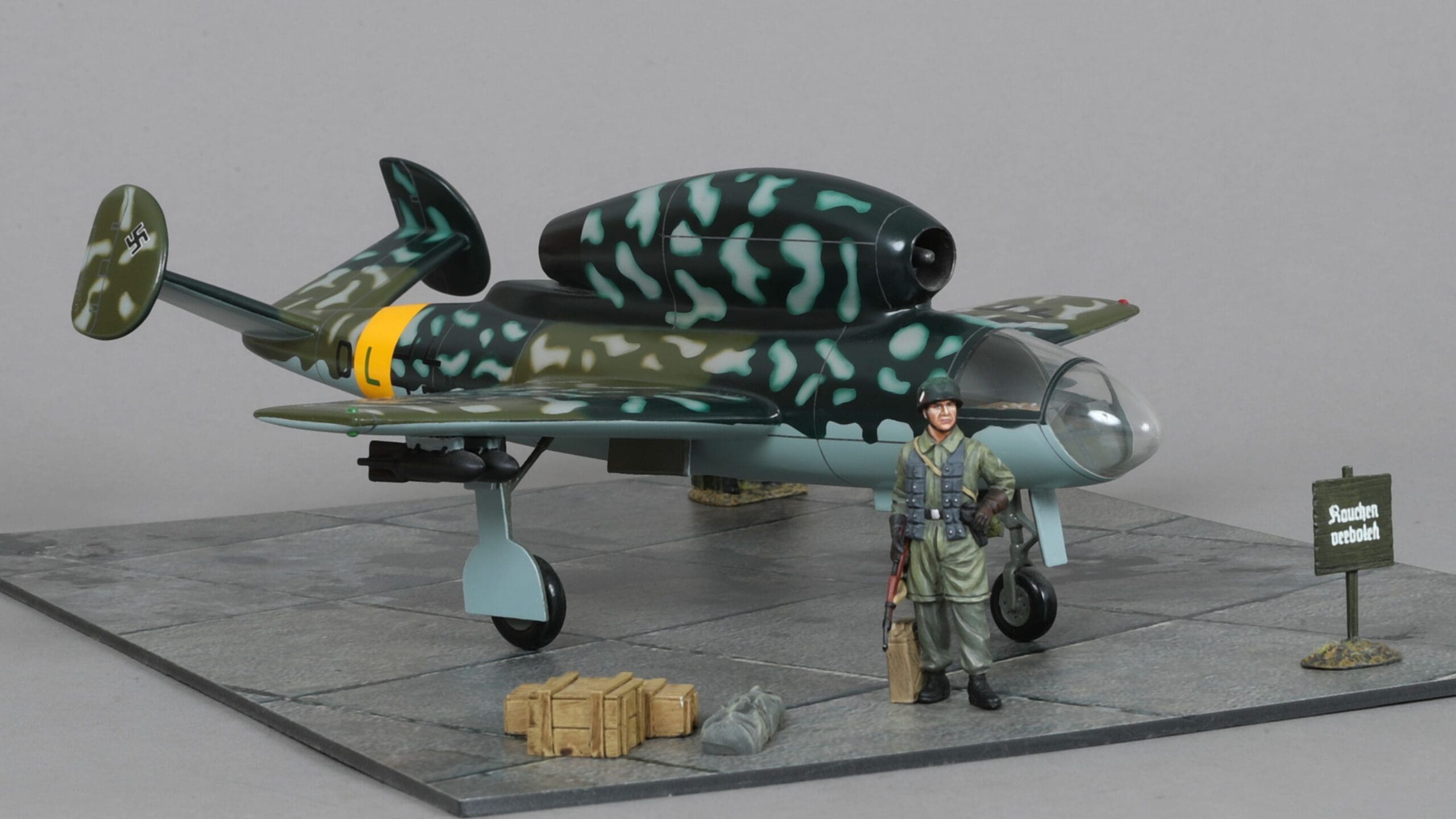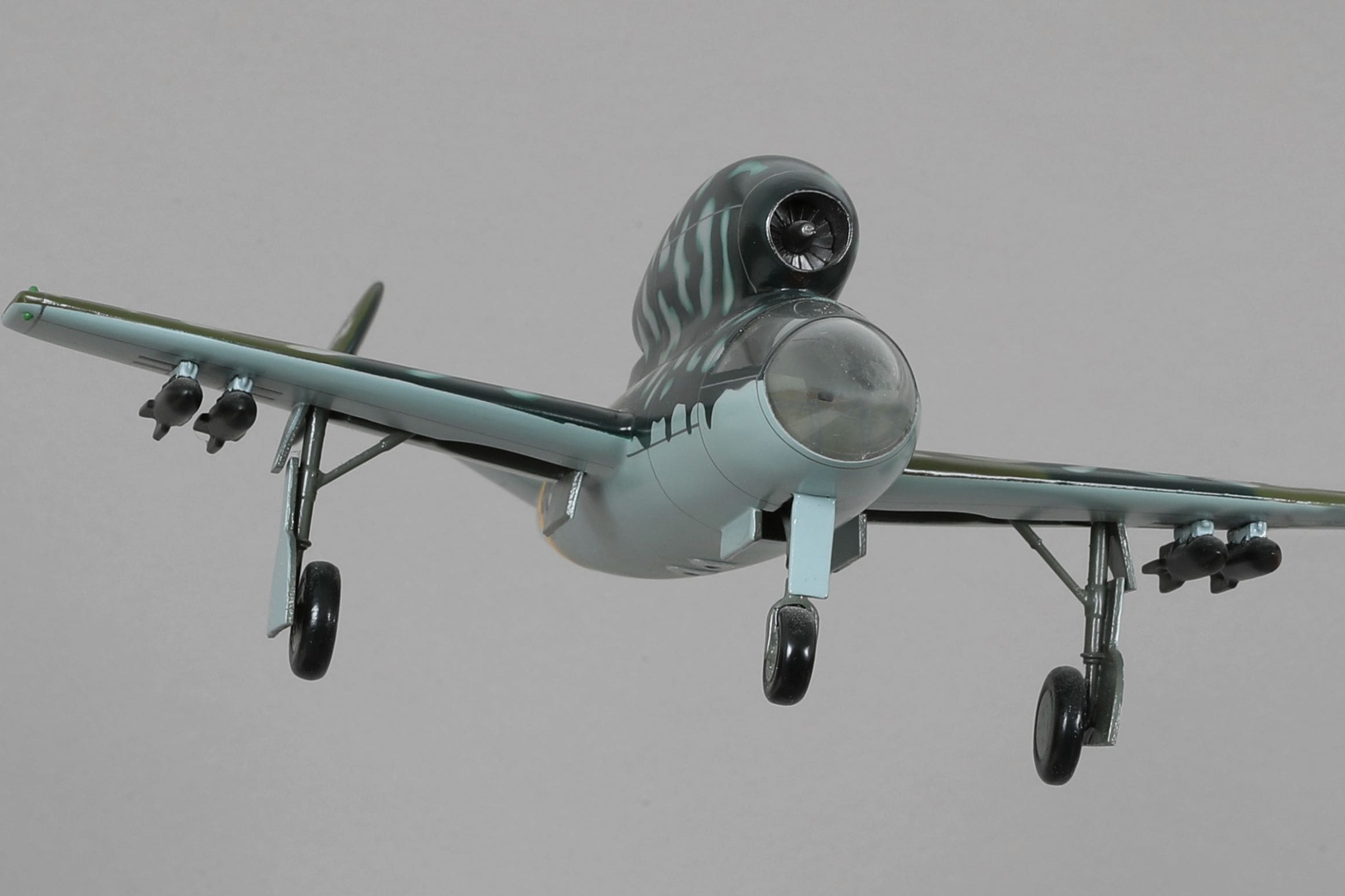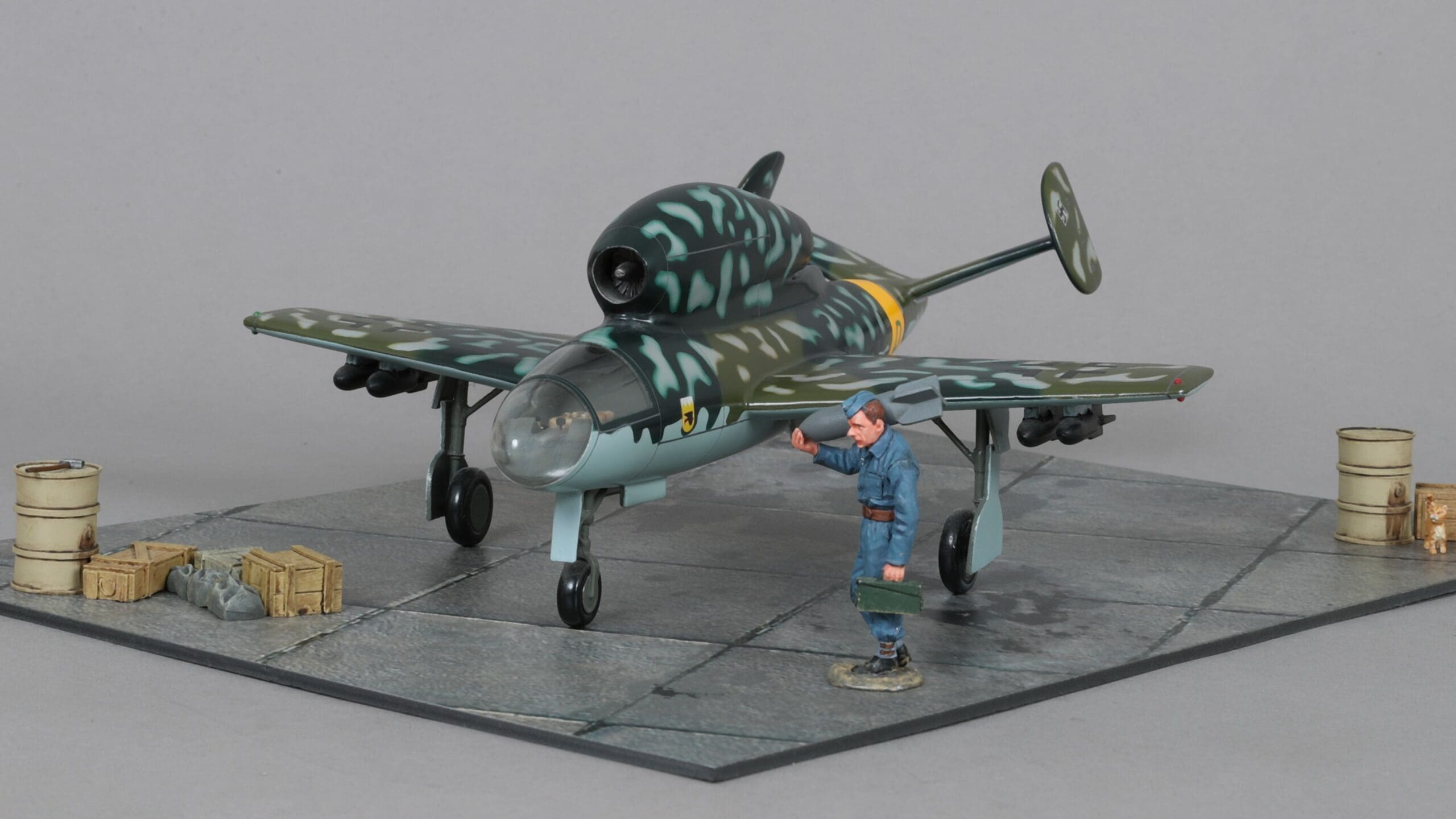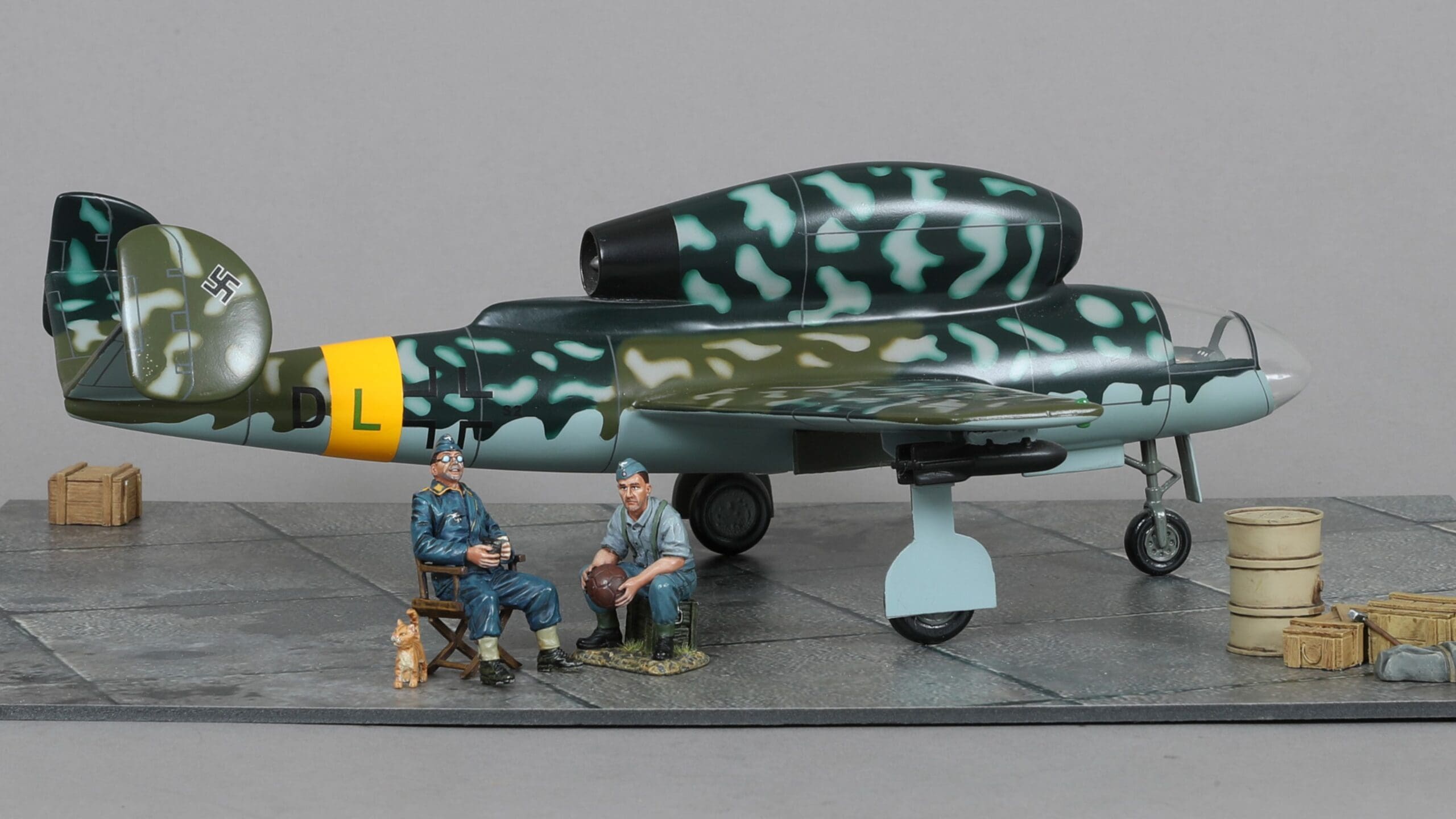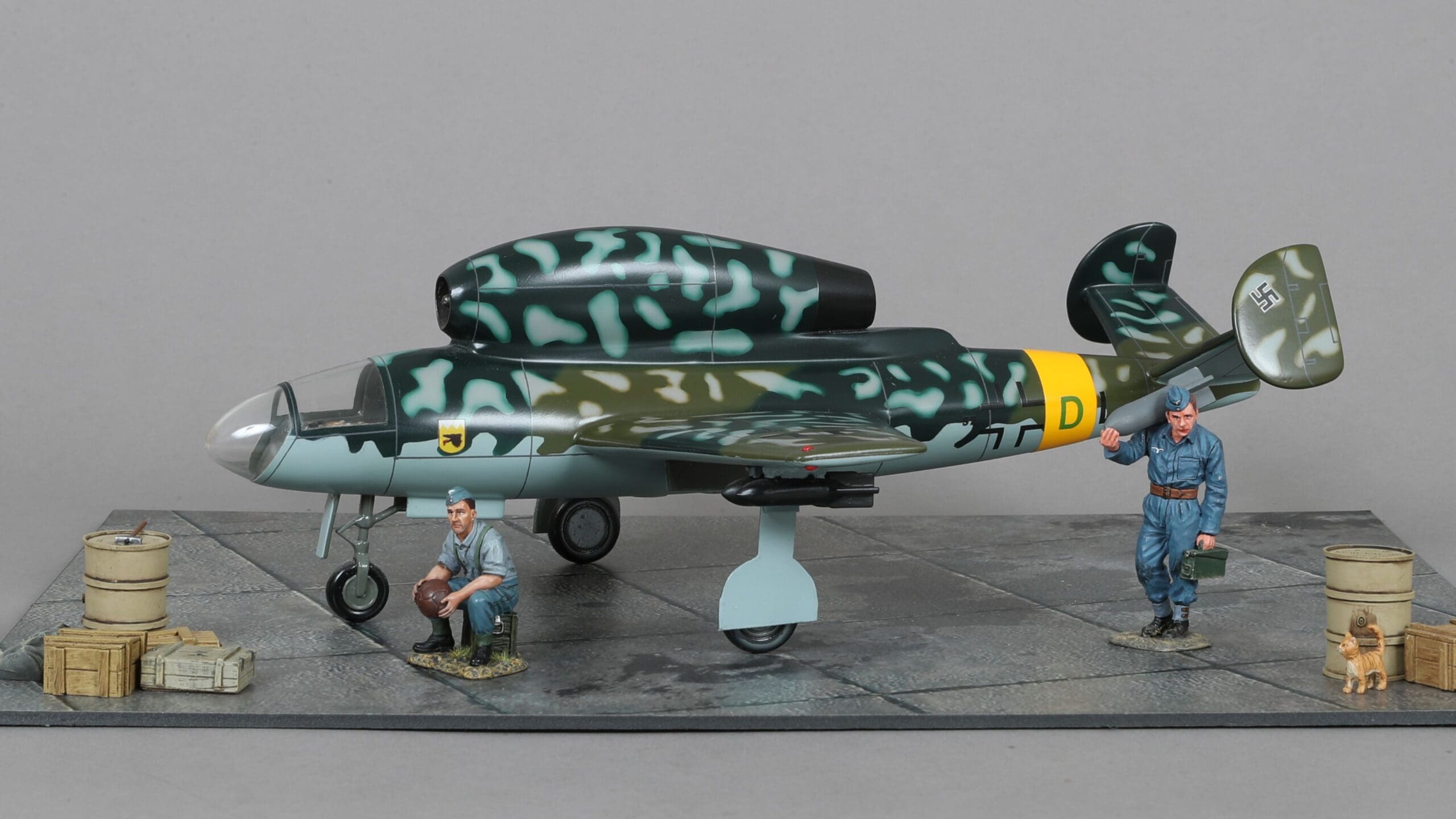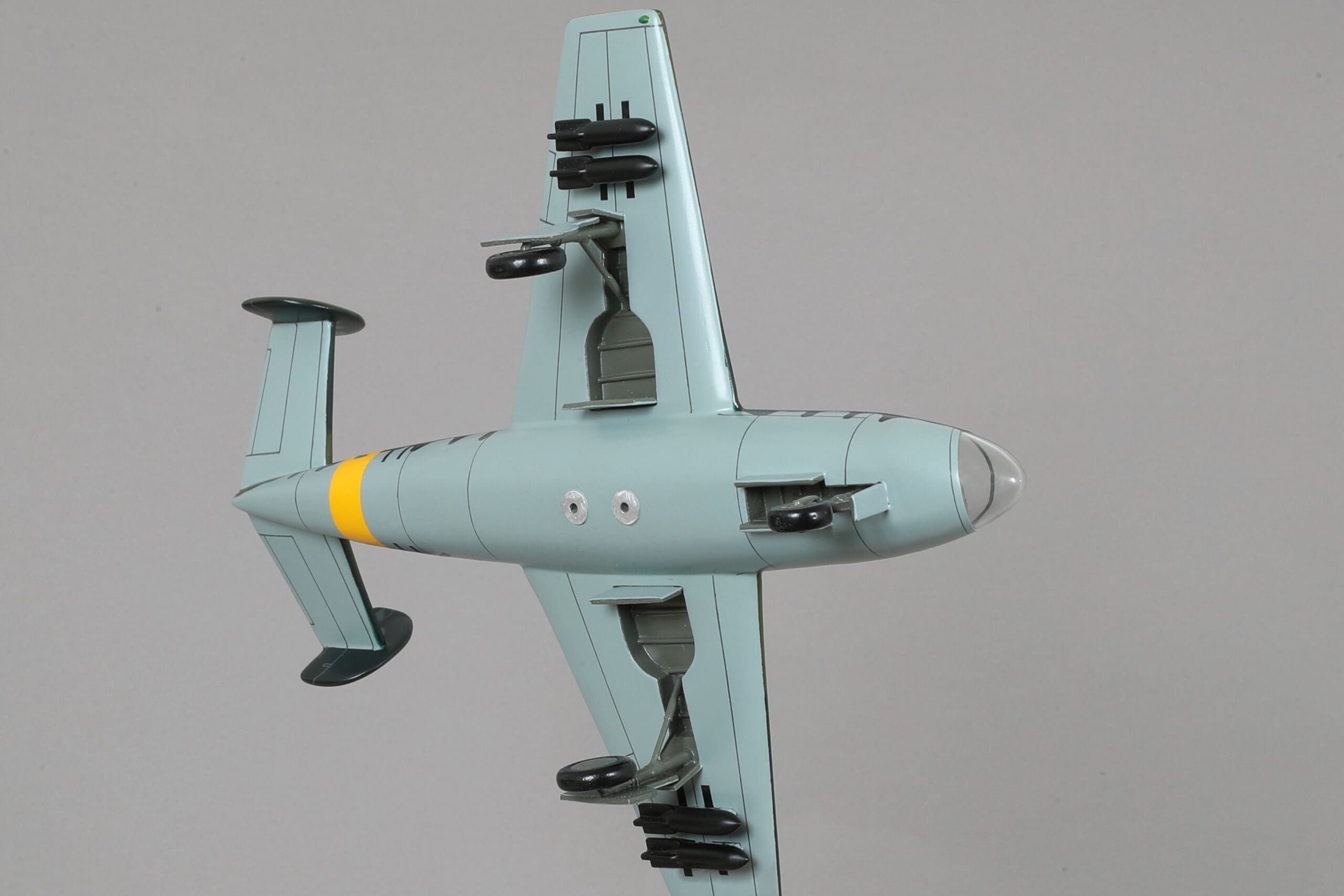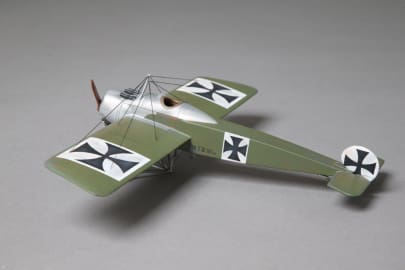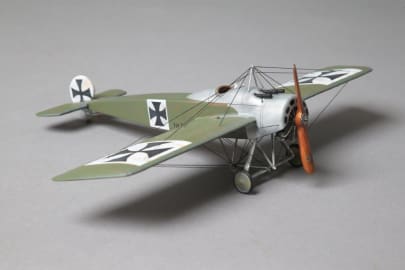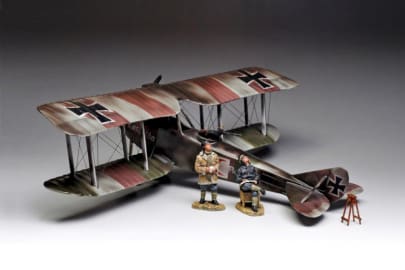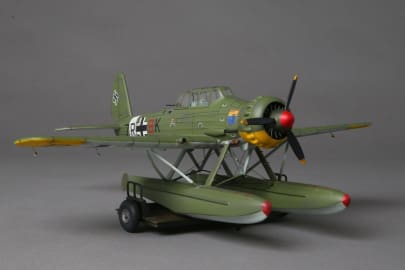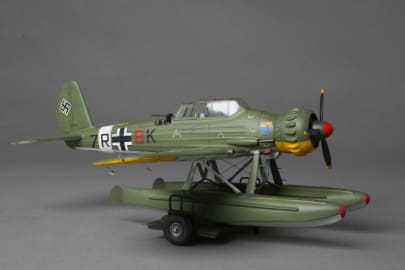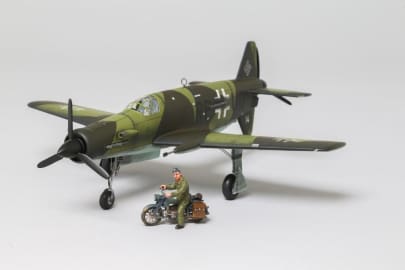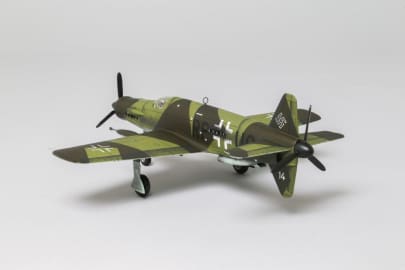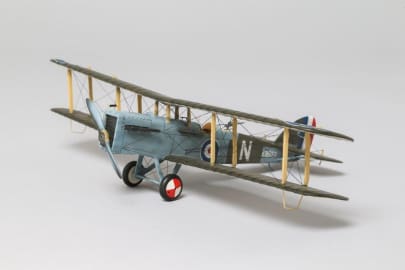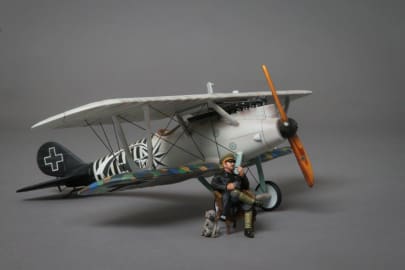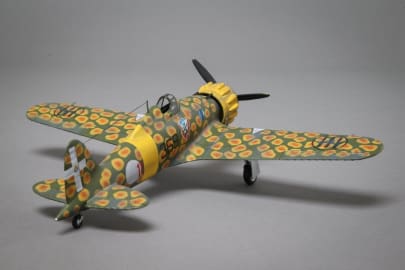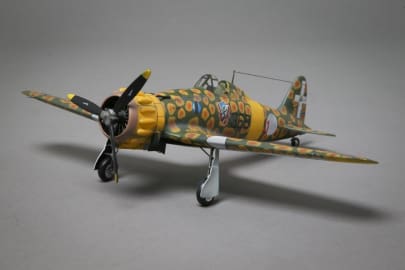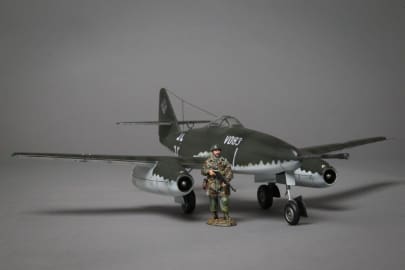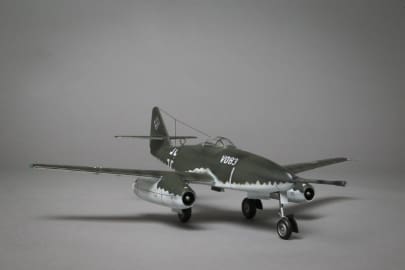- Free shipping available on orders over £100 (UK) £250 (EU) and $300 rest of the world
WOW536 Henschel HS.132 Dive Bomber
£559.00
Out of stock
Description
Description
The Henschel Hs 132 was a WW2 German dive bomber & interceptor aircraft that never saw service but came very close to it. The unorthodox design featured a top-mounted BMW.003 jet engine (identical in terms of make and position to the powerplant used by the Heinkel He.162 but this time with the pilot in the prone position.
There had been interest in the idea of a prone pilot for combat aircraft to reduce the effect of g-force during maneuvering. Several aircraft had already experimented with this layout for various reasons, the Horten III had a prone pilot, but this was primarily to reduce drag in this high-performance glider, while the DFS 228 glider also used a prone pilot to make it easier to seal its pressurized cabin. It was not until the Berlin B9 was built specifically to test this arrangement for improved g-load that any serious effort toward development could be carried out.
Starting in early 1943, the Berlin B9 twin-piston engined experimental aircraft demonstrated that it was indeed possible for a pilot to fly the aircraft lying down, and that it did improve his ability to handle high loads. The pilot had an extremely restricted field of view upward or to the rear that made it suitable only for certain roles, including bombers, fighters and interceptors with a major speed advantage over their opposition.
Based on this research, several late-war German designs followed the B9’s lead and used a prone pilot. Better g-load performance was not the only reason, however, as this layout also reduced the frontal area of the aircraft. This was a serious concern for interceptors attacking the USAAF’s B-17 Flying Fortress, as calculations showed that the chance of being hit by its defensive guns was largely a function of frontal area.
It was hoped that by the time the Hs.132B became available, the Panzerblitz anti -tank missile would be in production and available for use. The Hs.132D included a new wing of increased span. A contract for six prototypes was approved in May 1944, and construction was begun in March 1945. Hs.132V1 was scheduled to have its first flight in June 1945, However the Russian army occupied the factory just as the Hs.132 V1 was nearing flight testing and this amazing ‘whatif’ aircraft never got off the ground.
We have a total of three 1/30 scale models available worldwide.
All figures and accessories are shown for scale reference purposes only.

